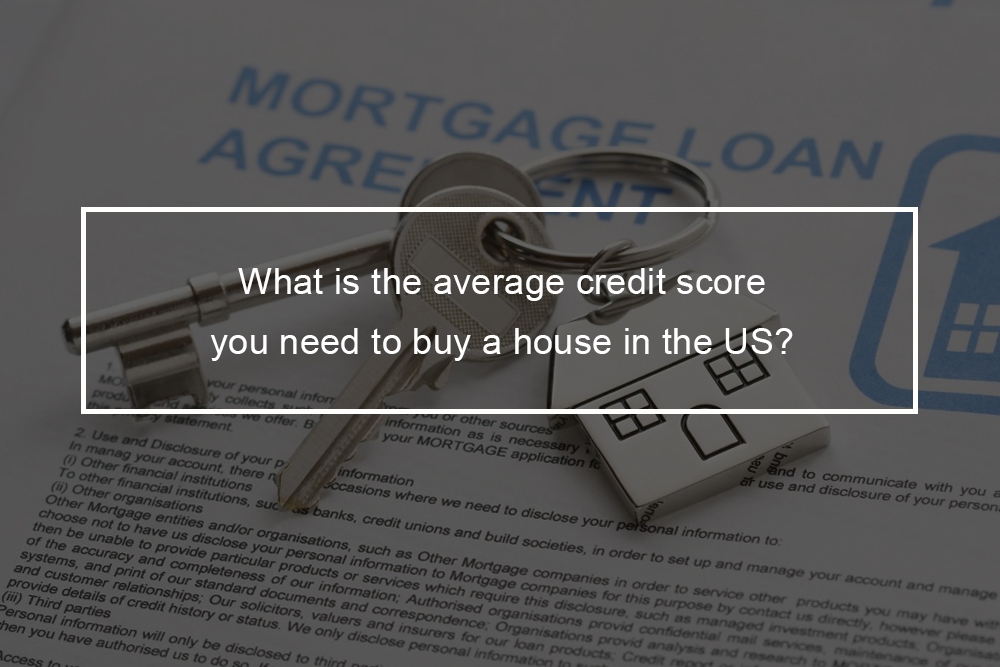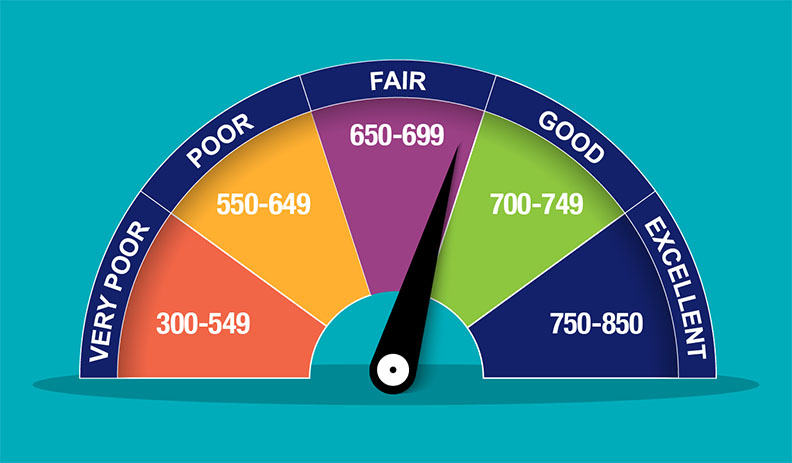If you are starting the home purchasing process, you probably have read stories about how much your credit score can regulate your ability to get a mortgage. While it is true that you require a credit score for the most robust interest rates and loan terms, less-than-perfect credit does not have to hinder you from your dream of home ownership. By understanding how your credit score can influence your mortgage rate, you can improve and build your credit before closing on your new house. Typically, the credit score required to buy a house depends on the kind of mortgage loan you are applying for and your lender. Whereas it is possible to get a mortgage loan with bad credit, you need exceptional or good credit to qualify for the best terms. Read through to learn what credit score you will need to purchase a house.
What is your credit score and how does it affect mortgage rates?
A credit score is a number that informs creditors how likely you are to repay debt. However, you do not just have a single credit score. You have three credit scores, one with each of the three major credit bureaus: TransUnion, Experian, and Equifax. The credit scores are generated by FICO, a data analytics organization, using the information offered by each bureau. Your credit score is among the more essential factors a creditor considers before deciding whether to approve you for a mortgage. However, they also consider your debt-to-income ratio, your savings, and how much money you have accessible to put toward a down payment. Apart from helping to determine whether you can even get a mortgage, your score also plays a massive role in the payment terms and interest rate you are ultimately approved for.
What credit score do I need to buy a home?
There is no concrete answer; however, experts say that a score of 660 can assist you in qualifying for a home loan. Scores of 660 or lower may mean ending up with a high-interest rate and poor loan terms. In this section, we will discuss the increasingly famous FHA mortgage, a loan insured by the Federal Housing Administration known for its credit score leniency and low down-payment requirements. You can qualify for an FHA with a 3.5 percent down payment with a credit score as low as 580- which is regarded as poor credit score. However, having a 580 credit score does not guarantee you will be approved for an FHA loan or any other mortgage. That is just the minimum for the federal government to ensure your loan.
Do mortgage lenders use all three scores?
It depends on the lender. Some lenders will pull one score, while others use two or all the three. If your lender uses two scores, it will usually use the lower one. If it pulls all three credit scores, your middle score will be used.
Can you get a mortgage with no credit?
The depressing thing about credit is that paying your utilities, bills, and rent on time does not help you build a credit history. Following ValuePenguin, about one in seven adults in the United States have no credit score, since they have not used credit in at least six months. If you do not have a credit score, it will be challenging to get a mortgage. If you have a record of paying your bills on time, though, you might qualify for an FHA loan with no credit history, even though it might be tough to find a lender. You are more likely to get approved by a smaller mortgage lender, specifically one that offers manual underwriting. This typically means that a human, instead of an algorithm, decides whether you are approved.
Joint mortgage and credit score: What if I am applying for a mortgage with a spouse or someone else?
Your mortgage lender will look at both your credit scores- which indicates that if your spouse or any other co-applicant has a bad credit score, it might disqualify you. If your spouse has bad credit, one workaround would be to leave them off the application, indicating the home and debt would be solely in your name. You can always refinance and then include them as co-borrower after they improve their credit.
What factors do lenders use when they decide whether to make a loan?
Your credit score can boost or break a mortgage application. Lenders want to learn a lot about you before they approve of what is possibly the biggest purchase of your life. Here are some of the factors the lenders will consider.
Income
Whereas mortgage lenders have different requirements, a good rule of the thumb is that your insurance payments, property taxes, interest, principal, and homeowner association fees, if applicable, should nor exceed twenty-eight percent of your pre tax income.
Debt
Mortgage lenders want to ensure you do not have much debt. That is why they pay close attention to your debt to income ratio, which is the percentage of your gross household income that is used for minimum debt payments. To get a qualified loan, one that complies with the Consumer Financial Protection Bureau’s regulations that were created to ensure borrowers can afford to repay their loans, you will require a debt to income ratio of forty-three or lower. Typically, you might still be able to get a mortgage if you are debt to income ratio is higher than forty-three percent; however, it is likely to come with high fees and other risky functionalities.
Down payment
Chances are, you will not require the traditional twenty-percent down payment. However, if you can afford it, it does come with many advantages: lower monthly payments and interest rates, and you may not need private mortgage insurance. Typically, the medium down payment for first-time buyers is just six percent, following the National Association of Realtors. And some programs enable you to put down even less. If you have a weak credit score, a larger down payment might help you get a mortgage loan for that new home.
Employment history
Your mortgage lender will typically want to see at least two years of continuous employment before approving you. This does not necessarily mean you require to have stayed in the same job for the two years before you get a mortgage, even though you have recently switched to a completely different field, this can make your lender nervous.
What is the minimum credit score you need to buy a house by mortgage?
Here is what to expect depending on the kind of mortgage you are applying for:
- Conventional loans: These loans are not insured by a government agency and conform to various standards set by the government-sponsored facilities Freddie Mac and Fannie Mae. Typically, conventional loans need a minimum credit score of 620, even though some might require a score of 660 or higher.
- FHA loans: Covered by the Federal Housing Administration, FHA loans have a minimum credit score of five hundred if you make a ten percent down payment, or 580 if you put down 3.5 percent.
- Jumbo loans: A kind of non-conforming mortgage plan, jumbo loans carry higher loan amounts than conventional loans. Since there is more risk involved with bigger loans, jumbo loans might need a 700 or higher credit score.
- VA loans: These mortgages are insured by the United States Department of Veterans Affairs and were designed to select members of the military community, their spouses, and other eligible beneficiaries. The loans do not have a minimum credit score requirement: however, lenders that offer these loans typically need that you have a score of 20 or more.
- USDA loans: the United States Department of Agriculture insures USDA loans. They are meant for low-and moderate-income home buyers looking to buy a home in rural areas. The USDA loans have a minimum credit score of 580 for its loans; however, there is the flexibility to go lower in specific situations.
If your credit shape is in good shape, you might have several different loan kinds from which to select. But if your credit score is regarded as bad or fair, your alternatives might be limited.













